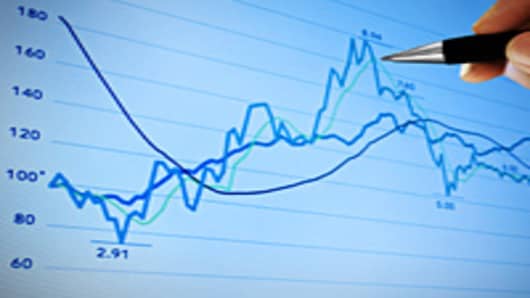They believe huge profits will be made for those holding Greek paper when Germany, the IMF and ECB outline a new rescue package that will convince investors they are serious about drawing a line in the sand on the sovereign debt crisis.
Rumors of a European TARP moment could yet be unfounded but with Merkel now serious about getting to grips with the crisis, investors who stay short Greek debt over the weekend could be scrambling to reverse their positions on Monday morning.
Officials at Greece's debt agency did not respond to CNBC requests for comments.
Fears over the long-term health of the euro zone remain high and it is difficult to argue with those who see the possibility of some members exiting the euro on a long term view.
Adam Cole, the Global Head of FX Strategy at RBC Capital Markets, is a euro bear and thinks we could hit $1.10 or $1.15 versus the dollar over the medium term but suggests an announcement on Greece this weekend could offer temporary respite for the market.
Given structural problems facing the euro zone, yields could bounce back from record highs but once they do, investors should sell again, Cole said.
Nouriel Roubini tells CNBC that Greece is just the tip of the iceberg and a major debt crisis is going to see members of the euro zone default.
"Suppose you have a disorderly collapse of Greece, two things happen. Financial institutions holding Greek debt, mostly in Europe, will have massive losses," Roubini said.
"Secondly, a contagion from Greece to Portugal to Spain to Italy to Ireland will have a domino effect. Eventually, debt increases and risk aversion is going to drive down the asset prices globally," he added.
What I think Roubini is missing is that Trichet, Merkel and Strauss-Khan are well aware of this threat and must be working on a package that will counter it in a credible way.
Trichet in particular has learned over the last three years how to manage market expectations, having dealt with the collapse of much of Europe's banking industry and the consequences of the collapse of non euro zone members like Iceland and Latvia.
What the Big Players Are Doing
Whether they can convince private investors to come back into the market is another matter. Pimco, the US fund specialized in investing in bonds, announced a while ago that it will not touch new Greek debt.





